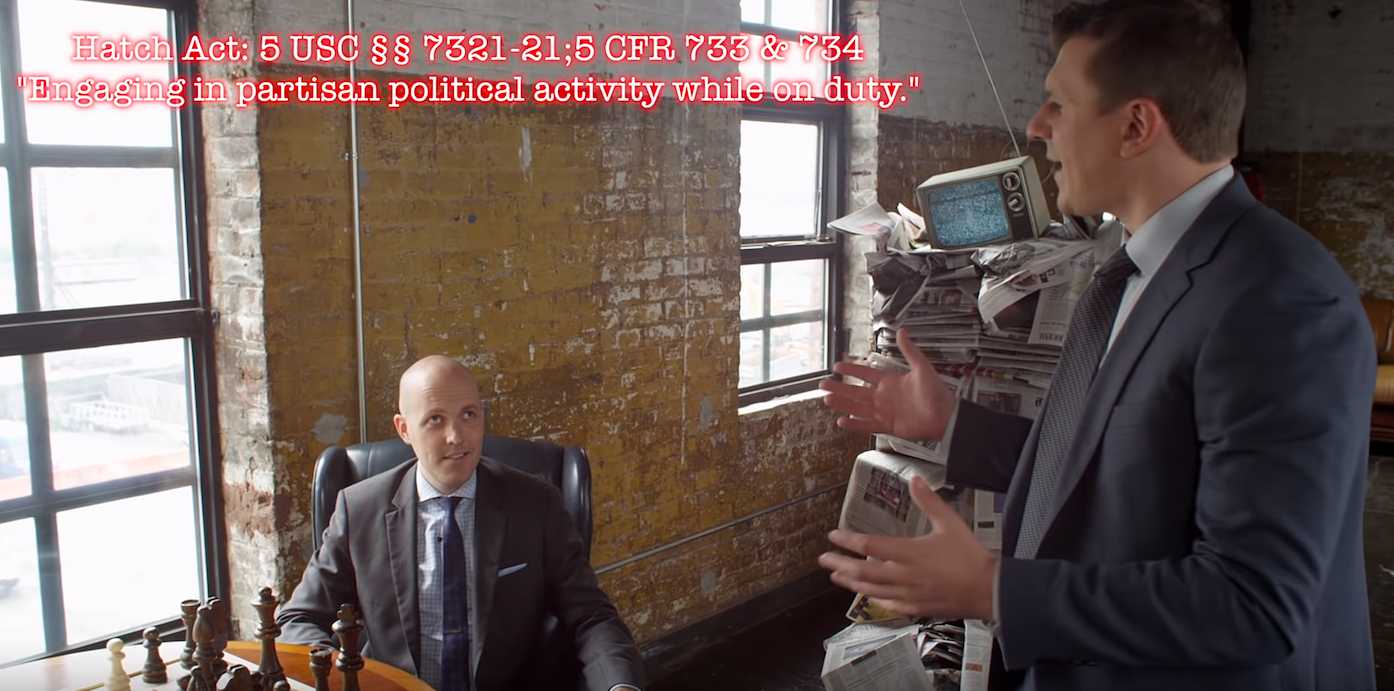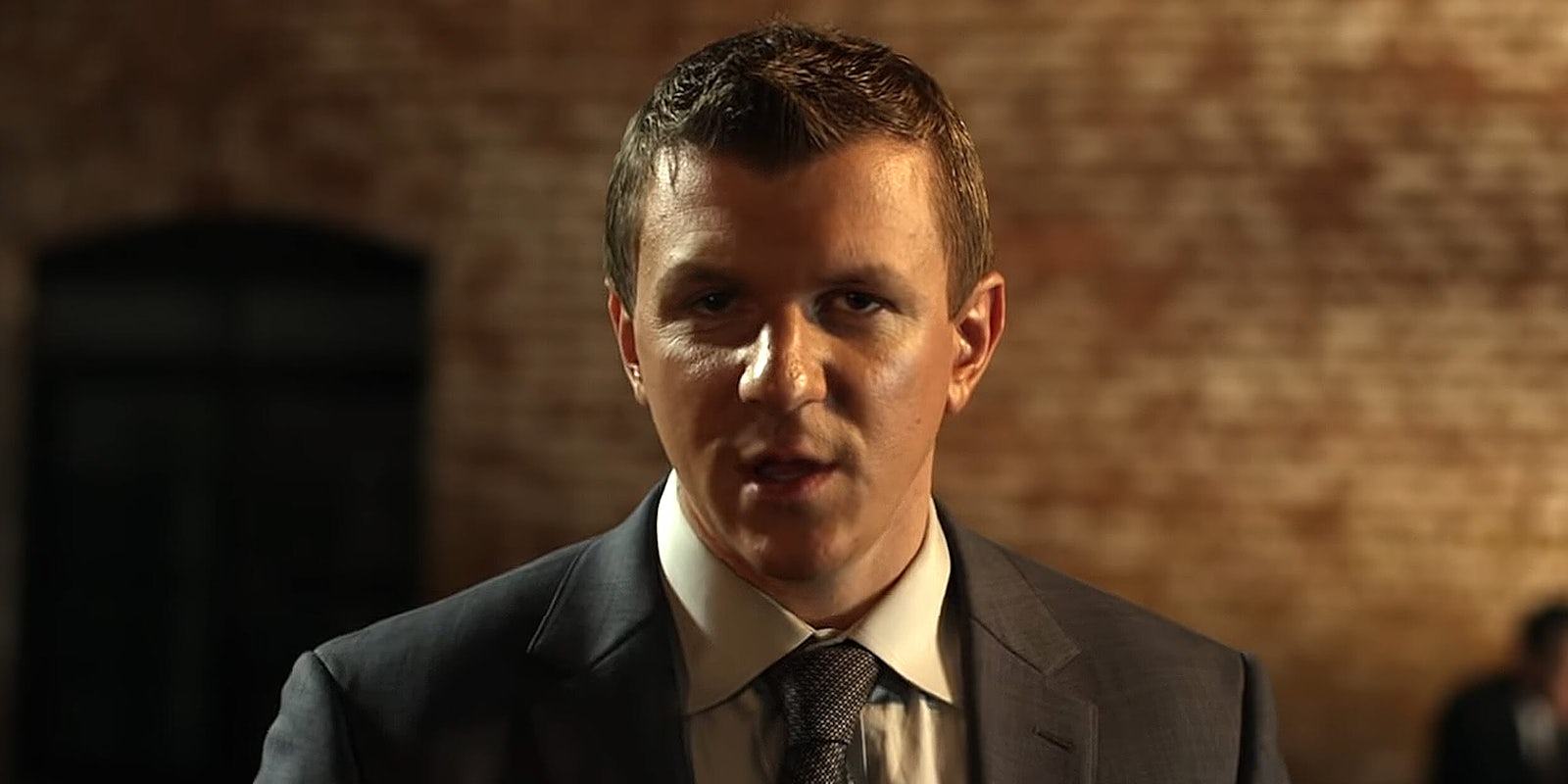A few days after teasing his takedown of the deep state at a far-right media conference, Project Veritas’ James O’Keefe III released his first video of the series, where a Project Veritas operative interviews a State Department employee. He wants to expose government secrets, but it appears that he may have outed himself as someone who copies and pastes from government class study guides.
In his undercover video, O’Keefe claims that Stuart Karaffa, a management and data analyst with the State Department, is secretly helping the Democratic Socialists of America during the workday.
And after consulting with a lawyer situated next to a chessboard and a stack of newspapers holding a TV, O’Keefe boldly declares that Karaffa has violated the Hatch Act.

The Hatch Act prohibits officials from leveraging their role in the U.S. government to unduly influence elections. And while O’Keefe portrays it as a doomsday, deep state scenario, perhaps the greatest violators of the Hatch Act are President Donald Trump’s own staffers—like Kellyanne Conway and Dan Scavino—who have been repeatedly cited for violating it on behalf of the president and Republicans.
While O’Keefe doesn’t address that in his shakedown of government employees breaking the law, his citation of the Hatch Act is interesting.
On the video, it flashes “Hatch Act, 5 USC §§ 7321-21;5 CFR 733 & 734,” with what a quote that reads “engaging in partisan political activity while on duty,” which he claims is a statute Karaffa is violating.
The only problem? That quote doesn’t exist anywhere in the federal code. The more precise language is that “An employee may not engage in political activity while the employee is on duty.”
While it’s a minor difference, O’Keefe wants people to believe that’s how the code is written, hoping to stir outrage by highlighting “partisan,” clearly an allusion to a resistance within the government.
And while that phrase doesn’t exist in the federal code, there is one place you could find it if you were trying to learn about federal government regulations: Some online flashcards for high school AP Government classes.
What does the Hatch Act do, quizlet.com?


So is O’Keefe getting his understanding of government straight from online quizzes aimed at high schoolers? Maybe not. The U.S. Office of Special Counsel has also used that language to describe the Hatch Act. In a release about a prosecution of the Hatch Act in 2016, Special Counsel Carolyn Lerner said that the Hatch act is “meant to stop” federal employees “from engaging in partisan political activities while on duty.”
But O’Keefe could have cited Lerner in his video, and chose not too. Either way, it’s not in the official code, as O’Keefe implies.
As for Kafarra’s supposed violation of the Hatch Act, what he actually did is unclear. While he says he takes pains to avoid sending stuff while at work, doing the research and prep for it could amount to a violation for him. The U.S. Office of Special Counsel did not respond to a request for comment regarding O’Keefe.
While O’Keefe touts it as smoking gun of a deep state, as evidenced by the punishments doled out to the Trump administration, it’s not considered some massive affront to the workings of the government.
And one person out of a 9-million-strong bureaucracy isn’t evidence of much.


